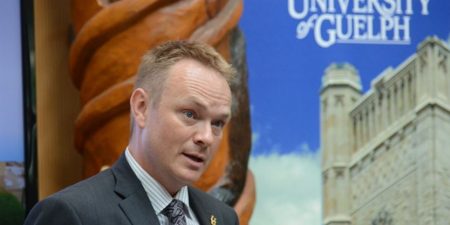
Editor’s Note: This article originally appeared in The Hill Times.
In February, Dominic Barton and the Advisory Council on Economic Growth set an audacious goal for the country: to become the world’s trusted supplier of safe, sustainable food for the 21st century and, in doing so, double our agri-food exports.
The aspiration to market our food as “safe and sustainable” took a beating in August when Canadians woke up to learn that one in five sausages tested by the Canadian Food Inspection Agency and the University of Guelph contained products not on the label. Pork was in beef sausages, chicken and turkey were mixed up. Some even contained horsemeat.
This latest case of food fraud comes on the heels of a different study that showed 30 per cent of seafood sold across North America is mislabelled. And then there was the European horsemeat scandal of 2013.
These studies reveal that food fraud is a systemic problem and that global food supply chains are too complex, involve too many players and encompass too wide a geographic region to be fully transparent.
There are major sustainability implications as well. A lack of transparency allows environmentally damaging food to be “laundered” in the market.
If Canada wants to take the Barton goal seriously, we need to do better.

Luckily, technology is giving us tools to address this issue. The technology is called blockchain. Blockchain is a ledger of transactions that can be used to keep track of everything from bitcoin transfers through to the exchange of goods and services.
But a blockchain is different from a regular spreadsheet saved on a single computer. A blockchain ledger is saved in thousands of different places all linked together in the cloud. Every time anyone makes a change to the ledger, the history of that change is logged on all the copies. As a result, everyone can see what everyone else is doing and because there are no single authors or sole “points of entry,” there is no opportunity for fraud. Consequently, academics and thought leaders such as my colleague Sylvain Charlebois of Dalhousie University are extolling the benefits of blockchain. And industry giants like Walmart and IBM are investing heavily in blockchain because they see it as a core piece of architecture that will underpin all transactions in the future.
For instance, a blockchain for agriculture might require seed companies to log the variety of seeds sold to farmers; farmers will log the pesticides they use and the number of times they drive a tractor over a field along with the field’s location. A food processor might log the nutrient and moisture content of a product while the shipper will log all the locations and dates on a food product’s journey along with the temperature and humidity of the shipping container. Food inspection agencies would contribute border control information while a retailer would enter information about location, price and date of sale.
Many of these data will be entered autonomously. For instance, modern tractors are equipped with GPS systems that will soon be continually uploading data into the cloud.
Consumers and regulators would be able to access all this information through a QR code while each step of the node would be verified and signed off on by a third party auditor.
In essence, blockchain gives us the tools to track and verify almost anything we can imagine in complicated global food supply chains. And this means consumers will know exactly what they’re eating, how it is produced and where it has come from. Regulators will be able to devise policies that reward food products that have low carbon emissions. Public health officials will be able to track pathogens. And the industry will benefit by being able to develop niche products for specific markets.
In essence, blockchain is to the digital age what double entry bookkeeping was to the Italian traders of the 14th century. It’s a system that helps guarantee the integrity and honesty of widely flung trading networks.
Just as it is impossible to imagine the European mercantile empires reaching around the globe without adequate bookkeeping procedures, it is impossible to imagine worldwide commerce in the Internet age taking root if the supply systems are prone to fraud and corruption.
Blockchain gives us the tools to realize the transparency and authenticity needed to ensure a safe, sustainable food supply for the 21st century. And this is exactly what Canada needs to realize the aspirations laid out by the Advisory Council on Economic Growth.
Evan Fraser is the director of the Arrell Food Institute at the University of Guelph and holds the Canada Research Chair in Global Food Security in the Department of Geography.